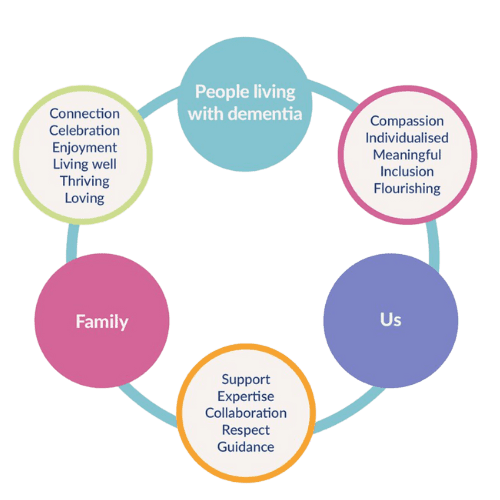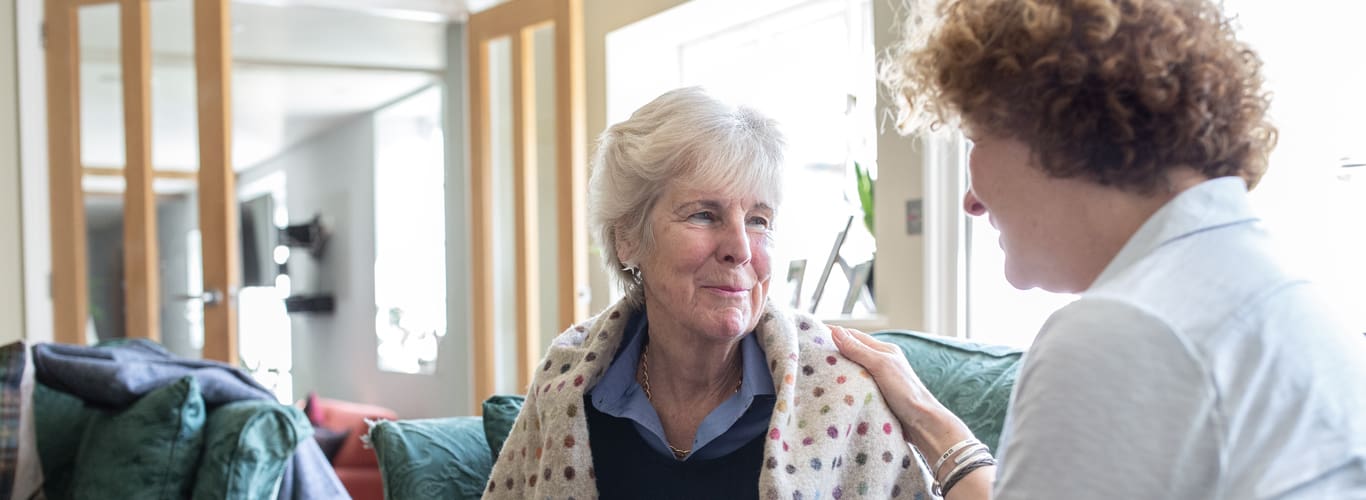Dementia care models
A ‘model of care’ can be loosely defined as something which provides “the best practice care and services to an individual as they progress through the stages of a condition, injury or event”. In simplistic terms, the aim of any care model is to ensure that a person receives “the right care at the right time, delivered by the right people in the right place”.

A holistic and person-centred approach
Many illnesses and conditions follow a predictable path to which a relatively unvarying care model can be effectively applied. For dementia, however, there is no ‘one size fits all’ model of care. This is because the symptoms associated with dementia can be attributed to many different causes such Alzheimer’s disease, stroke, severe head injury or the emergence of protein deposits, known as Lewy bodies, in the brain.
Consequently, dementia affects different people in different ways according to a variety of factors including the individual’s age, the area of the brain affected and the underlying cause of the condition.
Therefore, any dementia care model must take an holistic and person-centred approach to caring for people with this condition.
Examining the psychosocial approach to dementia reminds us that a person with dementia is no less a person than anyone else and efforts should be made to maintain and improve quality of life by respecting and preserving the individual’s personhood. To develop this further means that we take the perspective of how the person with dementia views their life rather than our perspective of how they should lead their life.
Dementia care pioneer Tom Kitwood argued the ‘dementia’ is not the problem; the problem is ‘our’ (individual, carer, professional, society) inability to accommodate ‘their’ view of the world (Kitwood 1997). Therefore there is a danger of creating/maintaining a ‘them’ and ‘us’ dialectic tension that has become reinforced over the years by the socially constructed and devalued status of someone who is ‘dementing’.
Everything you need to know about our dementia care model
Our new model of dementia care, is developed by our clinical team, including our Admiral Nurse, Dr Jane Pritchard. It articulates how we achieve the best care for people living with dementia and their families. The model is called 'EVER' and stands for:
- Engagement - These are the different techniques used to approach communication and to build rapport.
- Validation - This method is used to connect with people living with dementia emotionally through acknowledging feelings.
- Enrichment - Enables people with dementia to live full, meaningful lives. This is achieved through a number of techniques including reminiscence and music therapy.
- Relationships - 'EVER' adopts what is called a 'Relationship-Centred' model. It acknowledges the importance of empathetic communication with others.
Our personalised and fully managed dementia care services are designed to enable people with dementia to have the best possible quality of life, whilst receiving the care they need in the comforting and familiar surroundings of their own home.
To find out more detail about our dementia model, download our brochure.
Alternatively, to speak to someone about your dementia care requirements please call us on 0203 728 7577.

View more about our dementia care services
Other conditions we care for
Talk to us about your dementia care needs
Our friendly and experienced team is here to help you and your family make sense of the options available to you. Call us today – we will help you every step of the way.



